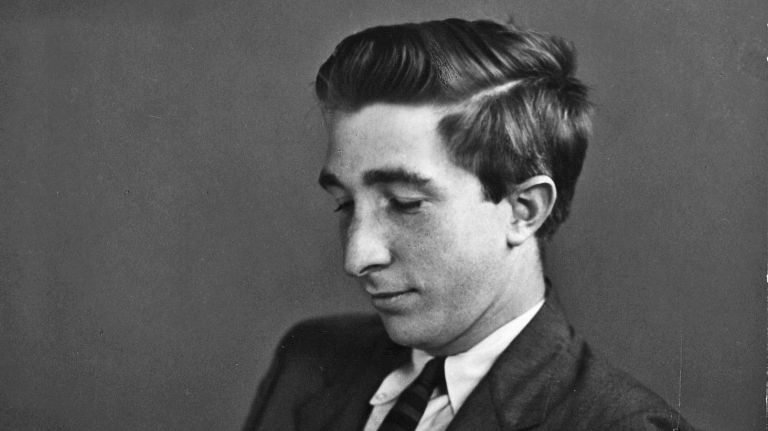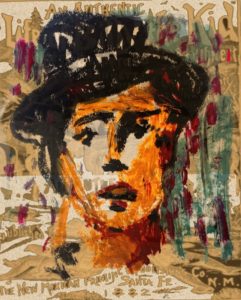Reconsidering the supreme stylist’s status in the canon.

I
n September of 2013, the Library of America issued canonical editions of John Updike’s collected stories, adding to the slim stand-alone volume, Hub Fans Bid Kid Adieu, published three years earlier. Then in 2018 and 2020 respectively, the Library put out Updike’s novels (Selected Novels 59-65, and Selected Novels 68-75). With the exception of Hub Fans, of major American poets/writers in our lifetimes, John Ashbery, Phillip Roth, Saul Bellow, all had beat Updike in admission to the Library’s pantheon. Perhaps the omission was related to publishing rights or some other ungratifyingly arcane matter, but one might also have suspected a snub. Nevertheless, it is gratifying to find Updike, while celebrated in life as one of the most nuanced chroniclers of his generation, finally getting a seat at the afterlife-accredited writers table. Updike’s working life as a writer extended roughly from 1954, when he graduated Harvard College and his stories started appearing in the New Yorker, to the early twenty-first century, when the last novel, Terrorist, was published. Along the way came novels, stories, poetry, critical essays, personal reminiscences, incidental bits and pieces, in an unrelieved torrent, more words than a reader could possibly hope to keep up with in a lifetime of summer reading. For some, this was not a sign of a brilliant prolificness, but of post-war work ethic of a Pennsylvania autodidact, or a logorrheic pathology. Among prominent practitioners in the lit-crit business, David Foster Wallace, James Wood, Harold Bloom, had taken a rather dim view of Updike’s oeuvre. His facility, versatility, subject matter, were somehow signs of suspect gifts, like those of a speedy shortstop who hits fifteen or twenty home runs a season. Bloom included only Witches of Eastwick, surely a minor if popular novel, in his grab-bag compendium of canonization-worthy world literature, The Western Cannon, tacitly damning Updike with faint praise. Wood was even more dismissive. “If one is always blearily swimming towards the raison d’être of these stories, it is largely the prose which is slowing one’s passage. The sentences have an essayistic saunter; the language lifts itself up on pretty hydraulics, and hovers slightly above its subjects, generally a little too accomplished and a little too abstract.” Yet even as Updike’s immense powers inevitably tailed off (Terrorist is an attempt to graft the usual obsessions of sex and domestic roiling onto the contemporary scene, and almost every page has something clumsy and essentially witless in it), and exposed him as occasionally limited in emotional and thematic range, the true gift—of generosity, sly love, his canny aptitude at translating shapes and sounds to metaphor—remained, if you ask me, pulsating. Despite its essential miscalculation, in Terrorist we still encounter throwaway nuggets that approach prime Updike. “His grandfather had shed all religion in the New World, putting all faith in a revolutionized society, a world where the powerful could no longer rule through superstition, where food on the table, decent housing and shelter, replaced the untrustworthy promises of an unseen God.” It isn’t, as Wood suggests, dutiful prose, but a pulse that simultaneously contracts and expands through the prose like electric current. Updike’s bracing last poems, collected in Endpoint, are mostly shorn of fancy writing, and present lives that ignite and flare out in fractions of a second, the way lives do. The poems are existential missives, child-like in the declarative affection that animated his fiction at its best.
They’ve been in my fiction, both now dead,
Peggy just recently, long stricken (like
my grandma) with Parkinson’s disease.
But what a peppy knockout Peggy was!—
cheerleader, hockey star, May Queen, RN.
Pigtailed in kindergarten, she caught my mother’s
eye, but she was too much girl for me….
Dear friends of childhood, classmates, thank you,
scant hundred of you, for providing a
sufficiency of human types: beauty,
bully, hanger-on, natural,
twin, and fatso—
or, regarding his own life and posterity:
A life poured into words—apparent waste
intended to preserve the thing consumed.
For who, in that unthinkable future
when I am dead, will read?
Library of America has placed its bets that readers born in the latter twentieth and early twenty-first century will, finding sentences, characters, stories, worthy of their attention; that the ancient Protestant steeples, putting greens and suburbanites’ messy extra-marital couplings will continue to resonate in the America of, say, 2045.
The past recedes into a vanishing point. Some authors, almost before the body goes cold, are relegated to ash heaps of their time. I for one am frequently puzzled how readers of the mid-nineteenth century could have found much merit in the works of some of its most beloved writers. Longfellow, William Gilmore Simms, even Harriet Beecher Stowe seem to me tediously sentimental, superficial, possessing a sclerotic mannerliness that seldom transcends the prose conventions their own era. It can happen to the best of ‘em, I know. Recently I purchased Library of America’s edition of Henry James’ Notes of a Son and Brother, and A Small Boy and Others, which for decades had been available only in backroom library copies, or on the shelves of obsessive Jamesians. I worship the meticulously witnessed The Bostonians, Portrait of a Lady, Daisy Miller, and shorter tales (What Maisie Knew, Aspern Papers…), but struggled mightily to find a clear path into the late period James of A Small Boy. Its tics, throat clearings and genealogical obsessions seemed to coerce the reader into joining James in wandering the labyrinths of his own mind, or that of the amanuensis as he dictated in his cottage in Kent, with nary a helpful guide in sight. Likewise, one wonders if some of Updike’s novels might belong to the past’s un-resonant designs, the literary equivalent of a Dodge Dart, say: in the years between his graduation from Harvard and the post 9/11 collapse of politically heterogeneous but coherent-seeming America, Updike—increasingly, unfashionably, white, privileged, male—had become at risk of becoming an awkward counter to America’s twenty-first century polyglot growth spurt—not just in the academy but in popular imagination. His tales, like those of John Cheever or John O’Hara or Sinclair Lewis of earlier generations, might be read simply as the outrageous hijinks of a vanished tribe. Moreover, Updike’s fixations on the anatomical, his unrelieved male gaze, and tacit endorsement of social coherence over the wildly, vividly anarchic, were unfashionable even at their peak, as if he were the privileged passive recipient of all that 60s and 70s free love and protesting and cultural ferment, without himself bothering to make much contribution to it. Compared to, say, Mailer’s boisterous chronicling of his ramblings with Robert Lowell in midst of march on the Pentagon protests in The Armies of the Night, Updike’s tales of Joan and Richard Maple marching in a 60s Boston protest while their marriage dissolves, or his patronizing description of the African-American radical, Skeeter, in Rabbit Redux, as “finely made electric toy,” can be read as an enshrining of privileged liberal assumptions, valuing irony over earnestness, preserving the status quo through dabbling in radical chic.
Sometimes it’s hard to discern the line between Updike and his alter-egos. We’re not sure whose mind we’re in, or what side we’re supposed to take. When Rabbit declares, “‘I hate [taking the bus]… It stinks of Negroes,’” one wonders if one is supposed to reel in disgust at Rabbit’s casual racism, or nod in assent. Pleasure or pain can provoke —or barely elicit moral upheaval. When Jill Pendleton, the runaway teenager living with Rabbit and Skeeter, dies in a fire, it hardly registers an emotional tremor. A cop asks if she was a loved one, and Rabbit answers, “‘Not exactly.’” Her erotic value, her life, obliterated, Rabbit moves on. Her carnality may have been splendid, but once it’s gone, the memory leaves little emotional trace. One wonders if this is the chilly flip side of what David Foster Wallace meant when he claimed, “that for the young educated adults of the 60’s and 70’s, for whom the ultimate horror was the hypocritical conformity and repression of their own parents’ generation, Mr. Updike’s evocation of the libidinous self appeared redemptive and even heroic”?
It’s hardly Rabbit’s greatest moment, but Updike resists easy summing up, and Mr Wallace’s faint grumbling strikes one as an adolescent fantasy of tearing down daddy’s house. We root for Rabbit as a heroic figure, flawed but decent in a modern semi-corrupt way. Halfway decent people can be profound assholes. Assholes can have their little moments of redemption. But Updike often refuses to give easy ways out. In Couples, the Rabbit quartet, The Centaur, or a parcel of other novels and stories, Updike’s America never settles into convenient taxonomies. We have to do the work of separating the characters from the books. But—and this is what separates Updike from lesser mortals—in sentence after sentence, his prose enlists us in rapturous delight in the ongoing project of American democracy. Regardless of what you think of Rabbit’s boorishness, he shares with his creator a multi-sensorial observational quality, and his observations, filtered through a writerly consciousness, at least partly atone for a great appetitive, American-style sense of entitlement. As with Thoreau’s observations of the skirmishes of his beloved ants at Walden, we get a sense of Updike carefully superintending his characters’ behaviors, relishing them punching it out in a not-always accommodating world. In their corner, he nudges them onward.
It’s also worth noting that, although Updike’s books range in scope, geographically speaking, so many of his characters—the golfers, ministers, carpenters, professorial types, warlocks, car salesmen—toil in familiar Updike real estate: the cloistered suburbs of the Northeast. The suburbs often get a bad rap from denizens of urban, hipper precincts; but in Updike’s hands, they function as literary metaphor, and one of his more tantalizingly realized characters. Even suburban weather can be characteristic, signaling the presence of god, or a shadowed shabby-picturesque domestic doom: “Autumn is starting to show its underside: out of low clouds like a row of torn mattresses a gray rain is knocking the leaves off one of the trees. That lonely old maple behind the Chuck Wagon across Route 111.…” On these streets, we seek, along with the author, links between the dismal and sublime, the sacred and profane. Fallen or otherwise, such suburban paradises are the loci of eternal drama. Worn-in, worn-out lives often stir and peter out not in existential angst, but in a low-level worriedness. Sunny vistas contain essences of mortality: bodily disintegration is dissonantly unforeseen in the midst of the grassy, glitzy bounty.
Part of being a Big Man (perhaps less so, Woman) Writer is that you’re expected to be a colossus, not merely a reporter of the minutia of the passing parade. Melville, Mailer, Roth, Bellow, Faulkner, bestriding the empire, rip through whole towns and countries with insatiable appetites, their tomes rippling with Big Themes. “To produce a mighty book, you must choose a mighty theme,” Melville says. “No great and enduring volume can ever be written on the flea, though many there be who have tried it.” In his way Updike was indeed trying to write a mighty book on the flea, reporting minutia from the neighborhoods. As a would-be Big Man of American literature, however, his stature rests not upon a singular novel or two, but, like Balzac, upon a collected oeuvre spanning more than half a century. His individual books, with perhaps the exceptions of Rabbit is Rich or Rabbit at Rest, are not tour de forces, but carefully observed tableaus, sociologically and culturally engorged, bursting at the margins, but whaling trips are not undertaken, wars aren’t fought, there are no epic cross-country journeys of self-discovery. The Bigness comes from an accretion of detail that over fifty years develops into an American La Comédie humaine. Several years ago I reread the four Rabbit novels (and one short postscript included in Licks of Love, a short story collection) over the course of a couple months. I’d read all of them years before, but in a haphazard, rather casual manner. The experience of reading them in sequence, however, left me reeling: starting in 1960 with Rabbit, Run, Updike checked in with Rabbit roughly every decade, taking him from a young man who, like the post-high school hanger-on in Richard Linklatter’s in Dazed and Confused, dimly senses his own limitations, aware that he’s living a prolonged afterlife, but holds to it as long as he can because he knows, somewhere in his American soul, that that’s all his life has to offer, to an adulthood of some unexpected material and spiritual attainment, a self-indulgent but humbled oldster, hustling to keep up on a basketball court. Rabbit’s individual experiences are greater than their sum, as perhaps all of ours will be. He dreams, plots, feuds, parents disastrously, loves perhaps slightly less disastrously, plays some golf, hawks cars, goes somewhere but not where he intended. But the books are greater than their parts. To read them quickly is to witness the increments of a life, days accumulating as years, fads, fashions, politics, passing so quickly that you hardly recognize a summary is in the works.
Mr Wallace criticized Updike for his obsessions with sex and mortality, but these are the obsessions of the flesh—organic modalities with which we cling to existence. The usual bourgeois trappings (all those Chuck Wagons) may eventually eradicate the enduring maple, but in the meantime (that is, our existence) we find our way, coming to terms with tensions of earthly strife and strive. Updike’s shopping malls, beaches, afternoon football games, like James Agee’s hissing sprinklers on summer lawns, or Wallace Stevens’ “coffee and oranges in a sunny chair,” provided context from the Eisenhower administration through the Obama; it seems, however, a writer’s observational powers, like that of space telescopes, are trained upon a fixed quadrant of the sky. Writers serve their times and are served by them, and in their deaths take the era with them (Updike died of lung cancer in 2009). I have no doubt that, had he been born in 1530, Updike would have turned out perfectly formed sonnets, but, as a conscientious, orderly writer, perhaps would have been less fine a chronicler of near-mid-twenty-first century’s hectic mayhem. Still, the prose remains in its equipoise and aptitude, elevating the quotidian to the noble. “The shade of the brick pavement under the streetlamp was the purple of wine dregs,” a character in Couples observes on a late-night walk. “Piet noticed a small round bug scurrying along a crevice: a citizen out late, seen from a steeple. No voice to call him home. Motherless. Fatherless.” On Updikean turf, bugs and nocturnal wanderers alike are furnished a home











